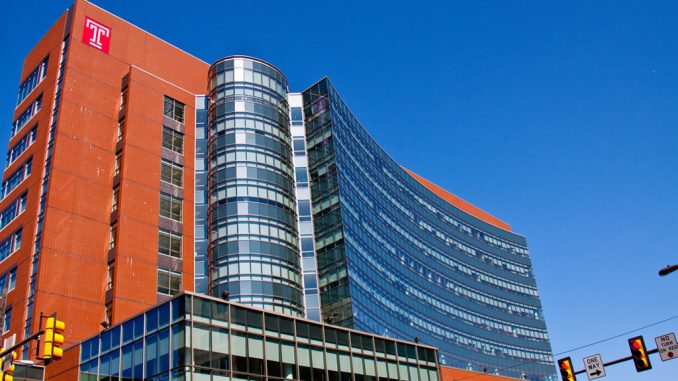

The Temple University School of Medicine received an $11.6 million grant from the National Heart, Lung and Blood Institute of the National Institutes of Health, to “develop new approaches to prevent, slow or reverse damage to the heart after a heart attack,” according to a press release.
The grant-funded program, “Improving Cardiac Function after Myocardial Infarction,” consists of four core areas: surgery and therapeutic intervention, cell and tissue evaluation, gene therapy and administration. Each area is budgeted for a staff of at least five people, with the exception of administration, which will have three. Dr. Steven Houser, professor and chair of the department of physiology and director of the Cardiovascular Research Center, said that does not include students recruited to work on the program.
Researchers will have five years to develop and test therapies. The program is scheduled to meet monthly.
“Five years in the grand scheme of science is a very rapid time frame,” said Houser, who leads the program.
“Since most members of this team are in the same building, communication and collaboration will be easy,” Dr. Walter Koch, professor and chair of the department of pharmacology and director of the Center for Translational Medicine, said in an email.
A heart attack occurs if the flow of oxygen-rich blood to a section of heart muscle suddenly becomes blocked. In 2008, more than 616,000 people died of heart disease, almost 25 percent of deaths in the United States, according to the Center for Disease Control. In 2010, coronary heart disease alone was projected to cost the United States $108.9 billion, including the costs of healthcare services, medications and lost productivity, according to the CDC.
Houser will lead a project to study the heart’s calcium levels after a heart attack.
“In disease, the calcium levels go up. We’re trying to develop strategies to prevent calcium from getting too high,” Houser said. “Calcium is absolutely essential to contraction [of the heart muscles].”
Koch will lead the individual project, “Exploring GRK2 Inhibition in Repair of Post-MI Cardiac Failure.”
GRK2, or G-protein coupled receptor kinase 2, is an enzyme that regulates the signaling of proteins in the heart.
“The goals of this project,” Koch said, “are to determine the role of GRK2 in cardiac stem [and] precursor cell function and the role altered GRK2 expression and activity may play in cardiac repair through regeneration.”
“Moreover, this project will explore large animal pre-clinical models of GRK2 inhibition in heart failure through gene therapy,” Koch said.
Gene therapy is a technique that puts a new gene into the heart to produce a geneticallyengineered protein. Houser said the technique could bring the biggest challenges to the program.
Koch’s team involves 20 people, including clinical fellows, junior faculty, graduate students and technicians. Three or four people will work specifically on studies funded by Temple’s grant. His project will also examine GRK2’s effects on cardiac regeneration after a heart attack.
“This is a new area of research for my lab and we are excited about the possibility,” Koch said.
“One reason for being part of this group is to take advantage of the large animal expertise,” regarding the program’s mice and pig models, “and carry out a final pre-clinical study,” Koch said. “Our project will be a big user of the pig core in order to test whether GRK2 inhibition can reverse heart failure that occurs in these pigs after they have a heart attack.”
Researchers will seek Food and Drug Administration approval for animal testing in early 2013.
“There are always issues in this type of research…for one, you cannot readily study a large number of pigs compared to the mice we typically work with,” Koch said.
The grant, Houser said, can bring Temple prestige.
“It made my boss happy,” he said. “Program project grants in today’s world are very difficult to get.”
In addition to research conducted at Temple, a drug study will be conducted at the University of Cincinnati.
Amelia Brust can be reached at abrust@temple.edu.


Be the first to comment